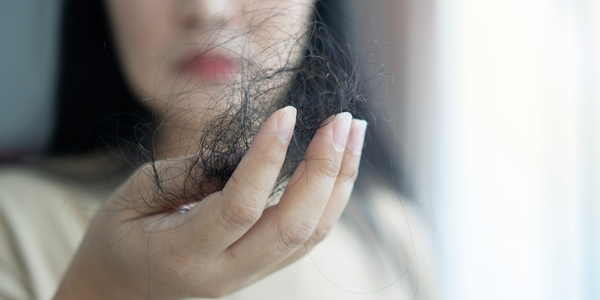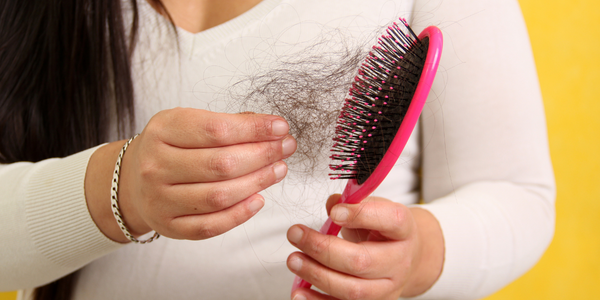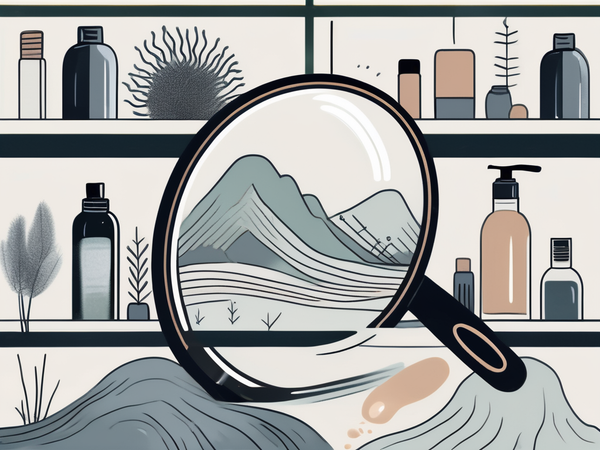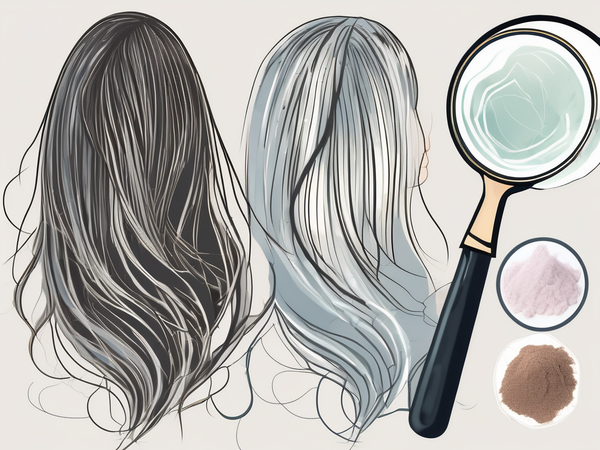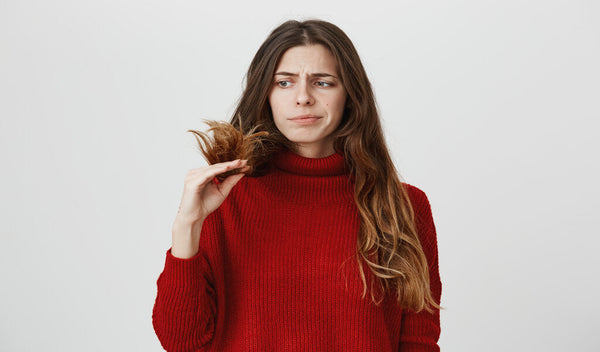With a hectic lifestyle and packed schedules, it can be difficult to give your hair the attention it requires. You might not notice anything at first, but long-term consequences can be pretty bad. You may start shedding more than 100 strands a day, notice an increase in hair thinning, and even your strands may start to seem dry and damaged. So, how do you take care of your hair amid busy schedules? We've got you covered.
This blog talks about how just adding one of the best minerals for hair growth, a.k.a. zinc or zinc supplements, to your diet can drastically improve your hair's health by nourishing it from the inside. How does zinc promote good hair health? Well, read along to find out. But before that, let's learn some basics about zinc.
Role of Zinc in the Body
Zinc is an essential mineral for overall health but it is not produced or stored in the body. This is why it’s vital to get your daily requirements through diet and supplements. Zinc plays several roles and functions within the body and is vital for the activity of over 300 enzymes that aid in metabolism, digestion, nerve function, and many other processes. It’s also necessary for the creation of DNA, the growth of cells, building proteins, healing damaged tissue, and even supporting a healthy immune system. Zinc is used by the body to fight infections and to help the immune system function properly through immune cell growth. It is also a crucial element for wound healing. Since it’s involved in many bodily functions, a shortage of this nutrient might lead to nutrient deficiency and health issues like diarrhea or poor vision, and hair problems. Zinc deficiency in pregnant women can even cause the baby in the womb to grow slowly or abnormally.
Symptoms of Zinc Deficiency include:
- Hair loss
- Loss of appetite
- Lack of alertness
- Diarrhea
- Wounds that won't heal
- Unexplained weight loss
How does Zinc Deficiency Impact Hair Health?
As stated earlier, zinc is an essential nutrient that your body needs for various functions. And when your body is zinc deficient, it affects and changes the protein structure of the hair follicles, making them weak. This weakening can lead to hair damage and, eventually, hair loss.
While there can be several reasons behind poor hair health, the most probable one is zinc deficiency.
How does Zinc Improve Hair Health?
1. Reduces Hair Loss
Studies suggest that zinc plays a crucial role in the production of DNA and RNA, which are integral for the division of hair follicles and contributes to reducing hair loss and improving hair health.
2. Reduces the Risk of Androgenic Alopecia
According to research, zinc has shown antiandrogenic potential as it inhibits the enzyme 5α-reductase type 1 and 2 activity. This enzyme converts some of the testosterone in the body into dihydrotestosterone (DHT). DHT is a primary hormone responsible for male and female pattern baldness.
Zinc supplements and zinc-rich foods reduce the levels of DHT by working on the enzyme and thus help reduce hair loss and improve hair growth.
3. Regulates Hair Growth
Consumption of zinc ensures that the hair growth cycle works smoothly and your hair doesn't enter the next hair stages (catagen and telogen) prematurely. Anagen is the beginning of hair growth. During this stage, your hair follicle pushes out hair, which continues to grow until you cut it yourself, or until it reaches the end of its lifespan and begins to fall out. The catagen phase is when anagen ends, hair follicles shrink, and hair growth stops or reduces drastically. Zinc hinders the entry of hair follicles into the catagen phase, leading to an improved anagen phase of hair. This helps regulate hair growth, making it one of the best vitamins for hair health.
4. Reduces Hair Loss due to Hyperthyroidism
Your body requires zinc and other elements like selenium or copper for the synthesis of thyroid hormones like thyroxine. A deficiency of these hormones may lead to hypothyroidism. Conversely, these hormones are crucial for zinc absorption. But as these thyroid hormones reduce during hypothyroidism, it results in a zinc deficiency, leading to hair fall.
The hair loss condition occurring due to hypothyroidism can be improved by introducing zinc supplements and zinc-rich foods into the diet. Zinc keeps hormone levels balanced and improves the production of thyroxine, thus proving to be effective in treating hair loss and supporting healthy hair growth.
5. Controls Dandruff
Last but not least, zinc pyrithione is effective in fighting dandruff. Zinc pyrithione comes from zinc itself, as the name suggests. It has antibacterial, antifungal, and antimicrobial properties, making it effective in fighting seborrheic dermatitis (dandruff). It prevents the growth of yeast, the main cause of dandruff on the scalp.
Foods High in Zinc
If you are struggling with a zinc deficiency or want to ensure you get enough levels of zinc, try incorporating these foods into your diet: -
- Legumes like chickpeas, lentils, beans, etc.,
- Shiitake Mushrooms
- Green Peas
- Spinach
- Oysters
- Quinoa
- Dark Chocolate
What Role do Zinc Supplements Play?
While you can get an adequate amount of zinc from your daily diet, it can be hard, especially if you're too busy or suffer from poor nutrient absorption. This is when zinc supplementation may help. Taking natural vitamin C tablets that also contain zinc is one of the best ways to ensure that you get the amount of zinc your body needs, as it not only works to improve hair health but also acts as a natural immune booster.
However, it is advisable to check with your doctor before taking zinc tablets or supplements, as certain medications that you might already be taking could react with the mineral.
Wrapping Up
Nobody appreciates the nutrient and mineral balance in the body until you lose it and start noticing deficiency symptoms that affect your health. That is why you must make sure you take adequate levels of all the nutrients, especially zinc if you want your hair to stay healthy.
Zinc plays a crucial role in fighting hair loss. Consuming the right amounts of zinc via food or supplementation is a good idea if you want to improve your hair health. Just by making a few lifestyle changes and including the right food items in your diet, you will see notable results in the health of your hair.
References
Daragó A, Klimczak M, Stragierowicz J, Stasikowska-Kanicka O, Kilanowicz A. The Effect of Zinc, Selenium, and Their Combined Supplementation on Androgen Receptor Protein Expression in the Prostate Lobes and Serum Steroid Hormone Concentrations of Wistar Rats. Nutrients. 2020 Jan 6;12(1):153. doi: 10.3390/nu12010153. PMID: 31935838; PMCID: PMC7019230. https://www.ncbi.nlm.nih.gov/pmc/articles/PMC7019230/
Plonka PM, Handjiski B, Popik M, Michalczyk D, Paus R. Zinc as an ambivalent but potent modulator of murine hair growth in vivo- preliminary observations. Exp Dermatol. 2005 Nov;14(11):844-53. doi: 10.1111/j.1600-0625.2005.00365.x. PMID: 16232307. https://pubmed.ncbi.nlm.nih.gov/16232307/
Ogawa Y, Kinoshita M, Shimada S, Kawamura T. Zinc and Skin Disorders. Nutrients. 2018 Feb 11;10(2):199. doi: 10.3390/nu10020199. PMID: 29439479; PMCID: PMC5852775. https://www.ncbi.nlm.nih.gov/pmc/articles/PMC5852775/
Dhaher SA, Yacoub AA, Jacob AA. Estimation of Zinc and Iron Levels in the Serum and Hair of Women with Androgenetic Alopecia: Case-control Study. Indian J Dermatol. 2018 Sep-Oct;63(5):369-374. doi: 10.4103/ijd.IJD_624_16. PMID: 30210156; PMCID: PMC6124235. https://www.ncbi.nlm.nih.gov/pmc/articles/PMC6124235/
Betsy A, Binitha M, Sarita S. Zinc deficiency associated with hypothyroidism: an overlooked cause of severe alopecia. Int J Trichology. 2013 Jan;5(1):40-2. doi: 10.4103/0974-7753.114714. PMID: 23960398; PMCID: PMC3746228. https://www.ncbi.nlm.nih.gov/pmc/articles/PMC3746228/
Mangion SE, Holmes AM, Roberts MS. Targeted Delivery of Zinc Pyrithione to Skin Epithelia. Int J Mol Sci. 2021 Sep 8;22(18):9730. doi: 10.3390/ijms22189730. PMID: 34575891; PMCID: PMC8465279. https://www.ncbi.nlm.nih.gov/pmc/articles/PMC8465279/

















